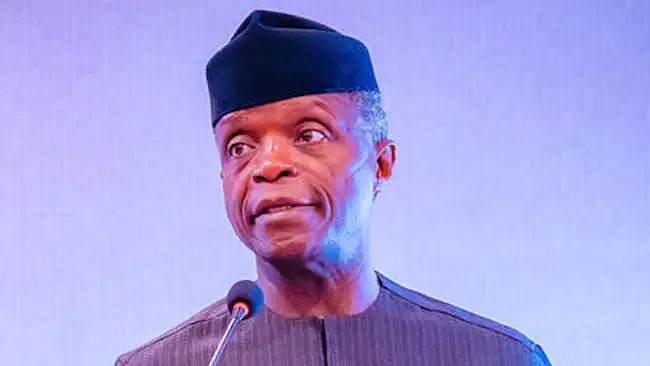
By all accounts, Nigeria is a deeply religious country. Churches dot every street corner, revival posters fill public spaces, and Sunday mornings often resemble national holidays in their scale of devotion. Yet, with all this spiritual activity, our nation continues to wrestle with moral decay, economic stagnation, and chronic corruption. Something doesn’t add up — and perhaps, it’s the gospel itself that needs to be examined.
Recently, former Vice President Prof. Yemi Osinbajo and Bishop Mike Okonkwo of TREM issued a bold but necessary challenge: it’s time for the Nigerian Church to return to the true gospel — one built on integrity, productivity, and responsibility. Their message couldn’t have come at a better time.
Miracle Money: Faith or Folly?
Let’s ask an uncomfortable question: are there still people who actually believe that “miracle money” will appear in their bank accounts without work, effort, or explanation?
Unfortunately, the answer is yes.
Some congregations are taught — and worse, believe — that financial breakthroughs will come from sowing a seed into the pastor’s ministry, rather than from hard work, education, entrepreneurship, or innovation. They’re led to think that divine intervention will cancel financial recklessness, or that tithing alone guarantees wealth, even in the absence of discipline or planning.
This isn’t faith. It’s fantasy.
And worse, it’s crippling an entire generation from embracing responsibility and productivity — the very values Prof. Osinbajo and Bishop Okonkwo are calling for.
Prosperity Without Principles?
The prosperity gospel, once meant to encourage hope and abundance, has in many corners been reduced to spiritual get-rich-quick schemes. It no longer teaches diligence, character, or stewardship — it promotes entitlement cloaked in spirituality. We hear more about divine bank alerts than we do about honesty, time management, or ethical living.
How can a nation be transformed when its moral compass is compromised at the pulpit?
The Church as a Nation-Builder
Historically, the Church has always played a key role in shaping societies. From education to healthcare and social reform, faith institutions have been the backbone of community development. But in Nigeria today, too many churches have traded substance for spectacle. We need less hype and more humility. Less manipulation, more mentorship.
The gospel isn’t just about heaven; it’s about how we live on earth. It’s about accountability, justice, compassion, and yes — hard work.
A Wake-Up Call for the Pulpit and the Pew
Prof. Osinbajo and Bishop Okonkwo are not condemning the Church — they’re calling it back to its core. And they’re right to do so. If the Church continues to preach convenience over character, we will keep raising people who expect blessings without responsibility — voters who sell their votes, officials who loot without guilt, and citizens who pray but never plan.
The truth is, God is not an ATM. Faith is not magic. And transformation — personal or national — requires more than just miracles. It demands integrity, productivity, and responsibility.




